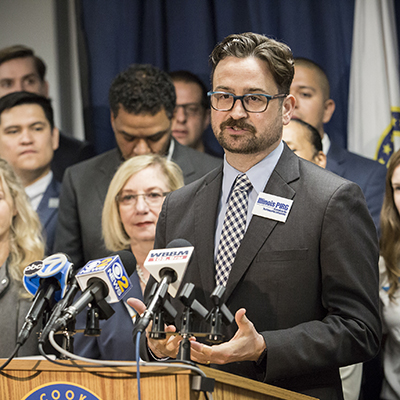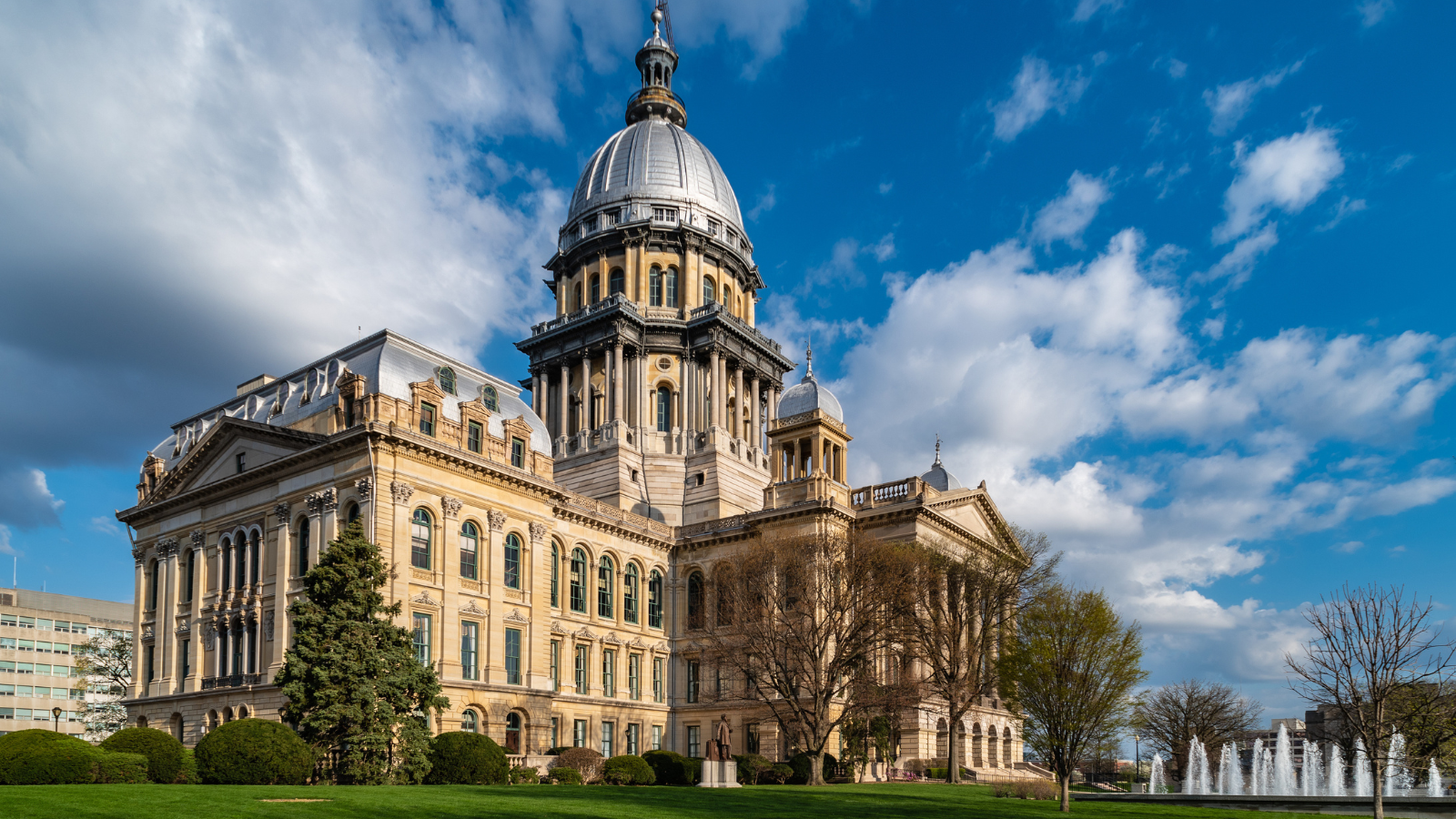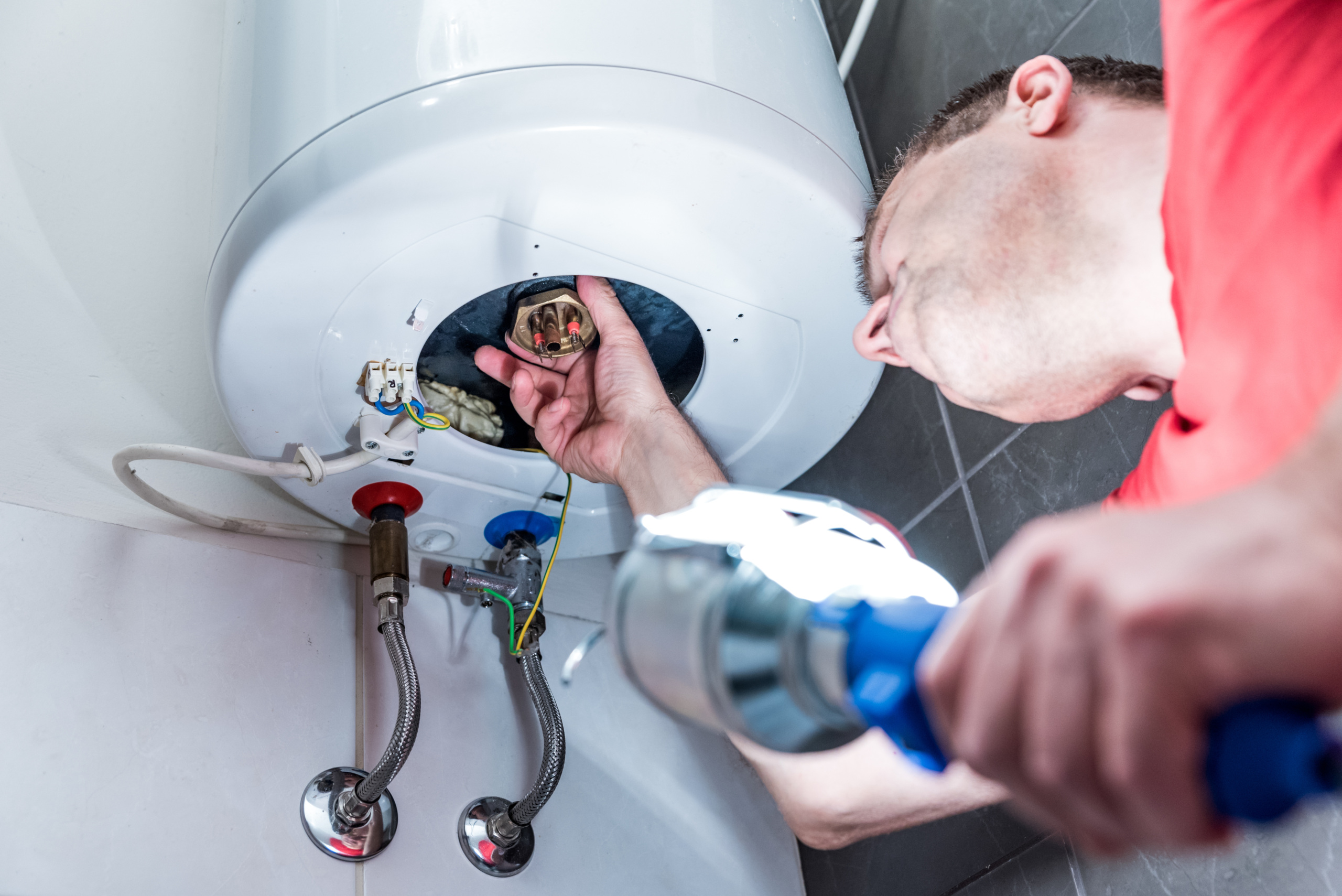
Testimony before the Senate Energy and Public Utilities Committee in opposition to SB2393
We oppose Senate Bill 2393 because it assumes fossil fuel infrastructure is the best solution to a community’s energy needs without proper consideration of alternatives. We also oppose SB2393 because it incentivizes gas line extensions throughout Illinois by shifting costs of extension on to existing customers. These policies are risky if not reckless in a time of climate change.
Chairperson Hastings, Vice Chairperson Ellman, Spokesperson Rezin, honorable members of the committee: thank you for the opportunity to testify today. My name is Abraham Scarr and I am the Director of Illinois PIRG. Illinois PIRG is a statewide, citizen funded, non-partisan public interest advocacy organization that speaks out for a healthier, safer world in which we’re freer to pursue our own individual well-being and the common good.
To be clear: I do not represent community members from Pembroke Township nor claim to speak on their behalf. I support efforts to ensure all Illinois residents have access to high quality, affordable public utility services. This includes of course, the residents of Pembroke.
We oppose Senate Bill 2393 because it assumes fossil fuel infrastructure is the best solution to a community’s energy needs without proper consideration of alternatives. We also oppose SB2393 because it incentivizes gas line extensions throughout Illinois by shifting costs of extension on to existing customers. These policies are risky if not reckless in a time of climate change.
-
Illinois should not incentivize fossil fuel infrastructure without, at a minimum, robust consideration of clean energy alternatives
There are clean energy alternatives that can benefit Pembroke Township and Illinois. Instead of providing a fossil fuel subsidy, policymakers and utilities can invest in clean energy solutions. To improve heating affordability, comfort, and safety, the sustainable alternative combines energy efficiency with modern electric heat pumps and renewable energy.
This can be done at equal or lower cost to the gas proposal: The gas pipeline cost has been reported at over $8 million. Nicor Gas executives have stated their desire to fund additional energy efficiency for customers once connected to the gas system, adding unspecified investment on top of the $8 million. It is unclear who would fund household-level costs to convert propane equipment to operate on gas. With the same funds, each of the roughly 400 homes expected to receive gas service could instead receive at least $20,000 of non-gas upgrades (likely more when unspecified efficiency and conversion costs are counted.) This funding level could support significant investments in efficiency, modern heat pumps, and potentially other technologies such as local solar energy.
State and local leaders should evaluate non-fossil alternatives. Before committing to any new fossil fuel investment, state and local leaders should pursue an open process with significant opportunities for meaningful community engagement in which alternatives to gas can be thoroughly evaluated in comparison to the gas pipeline. Careful scrutiny of any future gas investments will facilitate an economic transition towards a clean economy. This process should include a full accounting of costs and benefits for both the gas and non-gas project alternatives and consider whether clean energy investments can effectively meet the needs of this community.
The State of California has considerable experience with a similar situation, though on a larger scale, in the San Joaquin Valley. In 2015, a California state law directed their public utility commission to investigate options to bring more affordable energy options to low income communities in the San Joaquin Valley. The commission selected 11 communities for pilot projects. There was significant community engagement, including commission-led workshops within each community. In the 11 communities, the result was 10 electrification projects and one gas extension project. The communities with electrification received efficiency and appliance upgrades fully paid for by the utilities.
-
Illinois should not incentivize gas line extensions, as SB2393 does by shifting costs onto existing customers
SB2393 provides gas utilities with incentive to extend gas lines by allowing them to shift the costs of extension on to existing customers.
83 Illinois Administrative Code 501 governs how gas utilities may extend distribution mains to new customers. Part 501 allows new urban customers a small amount of “free” pipe, that is, paid for by existing customers. If a new urban customer needs more than the “free” allowance they can pay for the cost of the additional amount. For new rural customers, there is no “free” allowance.
Alternatively gas utilities may extend service by applying to the Illinois Commerce Commission (ICC) for a “Certificate of Public Convenience and Necessity” (CPCN) which, if approved by the ICC, allows the utility to shift some portion of extension costs to existing customers. Both Nicor and Ameren have done so multiple times over the last decade, resulting in existing customers subsidizing over $8.8 million in extension costs to new customers.
For so-called “hardship communities” SB2393 does three key things.
- First, it directs the ICC to approve CPCN applications so long as they meet basic criteria.
- Second, it directs the ICC to do so on a timeline (120 days) that discourages scrutiny from the ICC or stakeholders.
- Third, it allows the utility to charge existing customers for extension costs by 250% more than their current tariffs allow. For Nicor, this shift means that instead of charging existing customers $5,000 per new customer, it can charge $12,500. For an extension to 400 households in Pembroke, that means $5 million in subsidization from existing customers.
Shifting some costs to existing customers in order to extend utility service to new customers is not wrong on its face, but neither is it reasonable on its face, especially for fossil fuel infrastructure. SB2393 takes away ICC discretion and essentially pre-approves millions of dollars of subsidization of fossil fuel infrastructure expansion.
Finally, while SB2393 creates these incentives for “hardship communities,” its definition of “Hardship area facilities” includes “the capacity to address reasonably foreseeable growth in areas adjacent to or in the vicinity of the designated hardship area.” This gives utilities even wider latitude to significantly expand their distribution system at the expense of its existing customers.
Incentivizing the expansion of fossil fuel infrastructure is bad policy for a number of reasons.
These are long-term investments in a short-term asset: The increasing pace of climate action and the shift away from fossil fuels could make gas pipelines outdated assets within the next couple decades, as the shift to non-gas alternatives leaves gas customers and utilities with assets that can no longer be used in a clean energy future.
Extending pipelines will make it harder to address climate change: Extending lines will increase the burning of gas, a fossil fuel that contributes to climate change. In addition to the gas burned in homes and businesses, significant amounts of methane leak during the extraction, transmission and distribution process. This methane is an especially potent greenhouse gas, as Nicor readily acknowledges when advocating for the ability to recover costs from customers for and profit off of so-called “renewable natural gas” infrastructure. Increasing our state’s reliance on gas as a home heating fuel increases the amount of methane burned and leaked, a direct and significant harm to our health and wellbeing.
Gas infrastructure can be a long-term financial burden: If the gas delivery system is not successfully wound down over time, it can become a major financial burden. Gas commodity prices have been low in recent years, while gas utilities have super-charged their infrastructure spending through “Rider QIP” and other means, increasing distribution rates. When gas prices inevitably rise, as they will this month, more and more customers will struggle to afford an essential service.
Chicago is currently experiencing a home heating affordability crisis. As of January, Peoples Gas customers were more than $145 million behind on their gas bills, significantly more than ComEd customers, despite ComEd having almost 3 million more customers. Data shows that, while the economic conditions of the pandemic exacerbated affordability problems, severe affordability problems predated the pandemic and will continue after. This is particularly relevant today as the winter disconnection moratorium lifts and thousands of disconnection letters go in the mail.
In conclusion, rather than passing SB2393, the General Assembly should invest in clean energy solutions for Pembroke Township and amend the CPCN process not to expand but rather to limit unwarranted subsidization of gas line extensions.
Thank you for the opportunity to submit written testimony. I will be happy to answer questions from committee members.
Topics
Authors
Abe Scarr
State Director, Illinois PIRG; Energy and Utilities Program Director, PIRG
Abe Scarr is the director of Illinois PIRG and is the PIRG Energy and Utilities Program Director. He is a lead advocate in the Illinois Capitol and in the media for stronger consumer protections, utility accountability, and good government. In 2017, Abe led a coalition to pass legislation to implement automatic voter registration in Illinois, winning unanimous support in the Illinois General Assembly for the bill. He has co-authored multiple in-depth reports on Illinois utility policy and leads coalition campaigns to reform the Peoples Gas pipe replacement program. As PIRG's Energy and Utilities Program Director, Abe supports PIRG energy and utility campaigns across the country and leads the national Gas Stoves coalition. He also serves as a board member for the Consumer Federation of America. Abe lives in Chicago, where he enjoys biking, cooking and tending his garden.
Find Out More

Cleaner, healthier, electric home heating

Illinois PIRG 2024 Legislative Agenda

Dry cleaner with an electric clothes dryer

